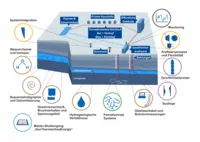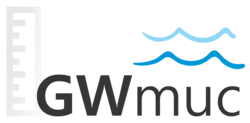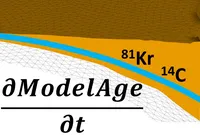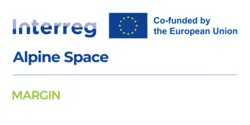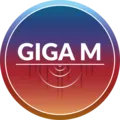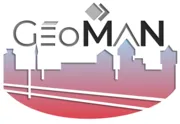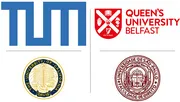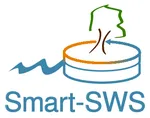Projects ongoing
InnoWATCCH
Hydrogeology, Biogeochemistry and Modelling Group
The project InnoWATCCH (Innovative Water Retention for Climate Change Mitigation, Sustainable Agriculture & Flood Protection) addresses the increasing problems of flooding and droughts in the Danube and Sava region. One focus is on using paleochannels for managed aquifer recharge (MAR).
Funded by: Interreg Danube Region; Targeted SDG: 6, 11, 14, 15
Geothermal Alliance Bavaria (GAB-3)
The focus of the subproject is to enhance the understanding of the Bavarian subsurface and to model its reservoir properties with improved accuracy. The models are designed to capture the reservoir characteristics across multiple spatial scales. (https://geothermie-allianz.de/en/home/)
GEO.KW Tool Berlin
A subsurface management model to support the sustainable use of shallow geothermal energy, provide key data for municipal heat planning and accelerate the permitting process.
Funded by: SenMVKU Targeted SDG: 6; 7; 11; 13; 17
GWmuc
ModelAge
Hydrogeology, Biogeochemistry and Modelling Group
The Upper Jurassic aquifer within the Bavarian Molasse Basin (BaySGMB) represents significant potential for sustainable geothermal energy utilization. Accurate and robust numerical modeling is essential for predicting the efficiency of geothermal operations and ensuring their long-term sustainability.
Funded by: StMUV, LfU Bayern Targeted SDG: 7; 11; 12
MARGIN
Managing Groundwater Sustainability in Urban Areas: Quantifying the vulnerability of groundwater quality & quantity to climate change and urbanisation, and developing adaptation measures for cities.
Funded by: Interreg Alpine Space
FlexGeo
FlexGeo aims to develop innovative geothermal energy system designs for maximized systems performance and flexibility.
Funded by: Horizon Europe Targeted SDG: 7; 11; 17
GIGA M
Large-scale integrated overall analysis of the deep geothermal potential and its synergetic utilisation in the greater Munich area
OptiGeoS
The overall aim of the project is to develop an open source tool for optimising closed geothermal systems close to the surface (EWS, BTES).
BEM-TG
The aim is to ensure a sustainable assessment of deep hydrothermal geothermal expansion in the Bavarian part of the Molasse Basin and to speed up the authorisation and initial planning assessment.
Funded by: StMUV; LfU Bayern Targeted SDG: 7; 11; 17
GeoMaN
The focus of this research is the recording and parameterization of the potential of the "shallow" geological horizons in the underground of the "Nürnberg" urban area, as well as the user-specific further development of lithoclasst 3D models and tools for underground-management.
Funded by: LfU Bayern; StMUV Targeted SDG: 6; 7; 11; 17
GeoChaNce
GeoChaNce is a joint project funded by the Environmental Agency between the assistant professorship for geothermal technology GTT and the Chair of hydrogeology.
Funded by: LfU Bayern; Targeted SDG: 7; 11; 17
Fighting against climate change
Hydrogeology, Biogeochemistry and Modelling Group
The overall aim of the project is to investigate the roles of the methanogenesis and the anaerobic oxidation of methane (AOM) in river sediments on the impact on CH4 emission rates.
PollLCA
Hydrogeology, Biogeochemistry and Modelling Group
The project PollLCA investigates the impact of pesticides on pollinating insects, where TUM’s focus is on investigating chemical fate in the plant-soil system.
WaterMARk
Hydrogeology, Biogeochemistry and Modelling Group
End of March 2023, the project executing organization has approved the funding for our WaterMARk application. This project will be performed with different leading research institutions, the Queen's University Belfast, the University of California Davis and the University of Sao Paulo and focuses on Adaptive water resources management using Managed Aquifer Recharge.
Targeted SDG: 6
GeoBOOST
Boosting geothermal heat pumps to mainstream cost-effective and efficient renewable heating and cooling in buildings
Funded by: EU-LIFE-2021-CET Targeted SDG: 7; 11; 17
SAPHEA
SAPHEA addresses the market uptake of geothermal energy and underground heat storage supplied multivalent heating and cooling networks.
Funded by: EU-Horizon 2020 Targeted SDG: 7; 11; 17
Nitrat Lurch
Hydrogeology, Biogeochemistry and Modelling Group
The project will use a novel method to enhance natural denitrification in shallow nitrate contaminated aquifers.
SpeicherCity
In the joint project "SpeicherCity", innovative models for the system integration of aquifer storage are being developed, coupled and applied to different locations in Germany.
3D-GeoModell Berlin
The Berlin Senate Department for Mobility, Transport, Climate Protection and the Environment (SenMVKU) has commissioned the Chair of Hydrogeology at TUM to set up a geological 3D subsurface model for the Berlin area using the modeling approach developed at TUM, i.e. the “Di models” method, and to adapt and further develop the local conditions.
Cooperations Bahamas
Hydrogeology, Biogeochemistry and Modelling Group
We are continuously cooperating with the University of the Bahamas (UB) and the Grand Bahama Utility Company (GBUC) on the island to evaluate groundwater quantity and quality concerning the current state and expected future developments.
GFK Monitor
The GFK-Monitor project will develop a holistic monitoring system supported by fiber optics and tracer technology to improve the integrity of geothermal systems.
Smart-SWS
The goal of this project is the technical implementation of a decentralized storage concept in existing aquifers that is capable of absorbing one or more flood peaks and releasing them to the receiving water with a very significant time delay or holding them for higher-value use.
Geothermal Alliance Bavaria (GAB-2)

In this subproject, the minimization of the drilling, exploration and production risk of hydrothermal geothermal energy in the Bavarian Molasse Basin, as well as sustainable reservoir management, are to be addressed in particular. (https://geothermie-allianz.de/en/home/)
GAB: Chemical reservoir management
Hydrogeology, Biogeochemistry and Modelling Group; Geothermal Energy Group
In this project, which is part of the Geothermal-Alliance Bavaria, subproject "long-term. Ensuring sustainable thermal water production" the physical and hydrochemical measured values of characteristic plants are processed and examined for multivariate changes in order to discriminate and quantify natural and technically induced gradients.
Kompakt

We are working on work package 2, which deals with the interpretation of temperature data in the Bavarian Molasse Basin, as well as an estimation of heat storage potentials.
Funded by: LfU Bayern; Targeted SDG: 11; 17
FouMon
In this project, a low-cost, ultrasound-based sensor network for direct detection and determination of fouling and biofilms is developed for geothermal plants and open cooling circuits. The sensor network is supported by a self-learning predictive-maintenance algorithm that enables prediction of fouling formation based on hydrogeochemical simulations and models developed in the project.

